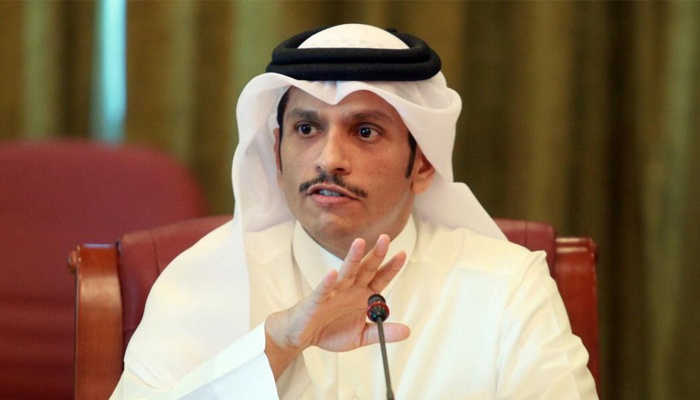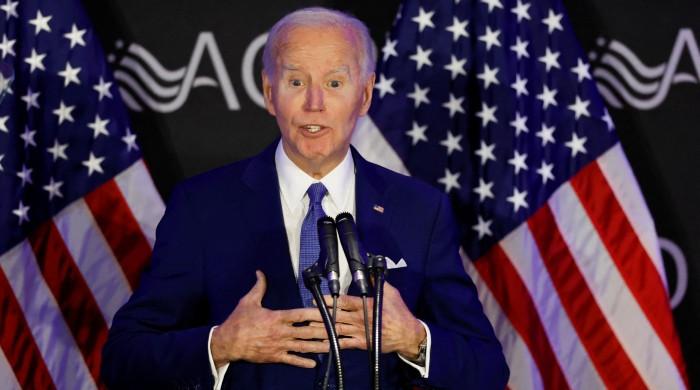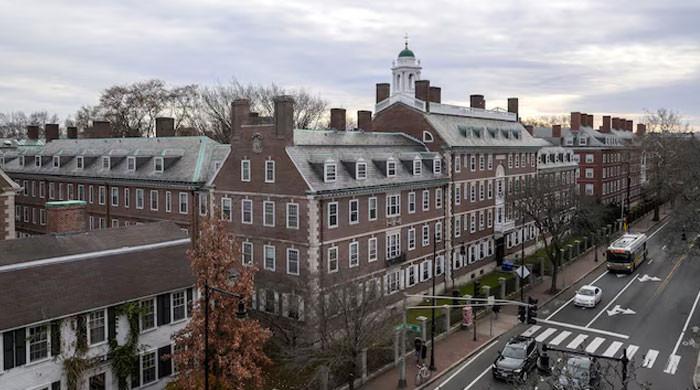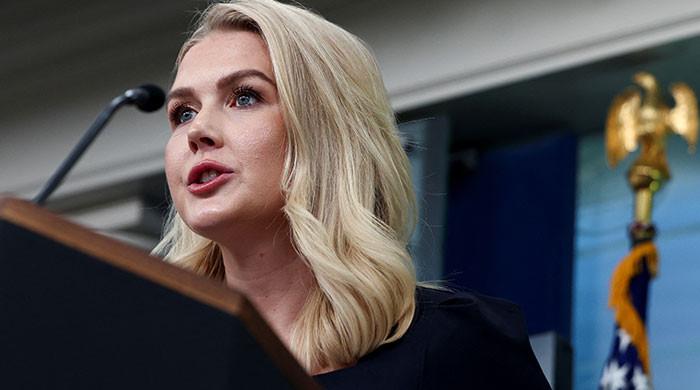Qatar compares Saudi actions in Lebanon to Gulf crisis
Saudi Arabia has triggered crises across the region, Mohammed bin Abdulrahman al-Thani said
November 18, 2017

WASHINGTON: Qatar's foreign minister on Friday compared Saudi Arabia's political manoeuvres in Lebanon to its boycott of his country, and accused Riyadh of a dangerous escalation.
Mohammed bin Abdulrahman al-Thani, in Washington to push the Gulf emirate's case in its diplomatic stand-off with the kingdom and its allies, said Saudi Arabia has triggered crises across the region.
He insisted Qatar is ready to come to the table to resolve the dispute under US mediation and played down reports that President Donald Trump has taken Riyadh's side.
But he maintained Qatar's tough stance, arguing that Riyadh is responsible for detonating a series of Middle East crises, by intervening in Lebanon, boycotting Qatar and bombing Yemen.
"This is something we have just witnessed in the region: Bullying small countries into submission," the foreign minister said, suggesting that Saudi aggression is a new regional threat.
"Exactly what happened to Qatar six months ago is happening now to Lebanon," he told reporters in Washington, where he hopes to meet US Secretary of State Rex Tillerson next week.
In June, Saudi Arabia, the United Arab Emirates, Bahrain and Egypt announced they had severed ties with Qatar, sealing off the emirate's only land border in the wide-ranging boycott.
They accuse Qatar's government of supporting extremism and fostering close ties with Iran.
Intimidatory tactics
Qatar denies the charges, claiming the dispute is an attack on its sovereignty. Both sides refuse to back down, but Doha says it is ready to engage with the US and Kuwaiti mediation.
Meanwhile, the Saudi-led intervention against Huthi rebels in Yemen has only escalated, amid warnings that its recent blockade of the country could lead to mass starvation.
And earlier this month, Lebanese premier Saad Hariri appeared on Saudi television from Riyadh to resign, reportedly on the orders of Saudi crown prince Mohammed bin Salman.
Riyadh accuses its foe Iran of supplying Yemen's Houthis with advanced rockets and Hezbollah of holding Lebanon and its coalition government "hostage."
Hariri insists he stepped down because of Hezbollah and Iran's "grip on his country," but observers and regional powers see the Saudi crown prince's hand behind the recent escalation of the crisis.
Qatar's foreign minister played on this growing concern in his meeting with US reporters, saying: "What we have seen now in the region is a lot of crises being started."
"The leadership in Saudi and the UAE should understand that there is a world order that should be respected. International law should be respected," he said.
"There is no right for any country to interfere in other countries," he argued, warning: "There is a pattern that is very risky for the region, and very intimidatory."











